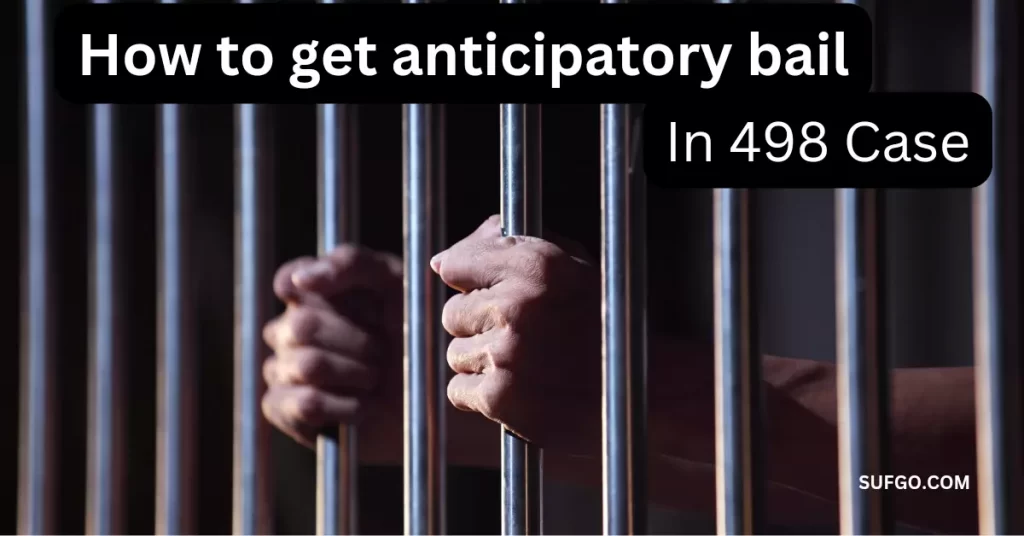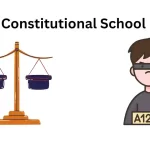In India, there is a provision for anticipatory bail under Section 498A of the Code of Criminal Procedure. This allows people who have been accused of dowry-related offences to be released on bail even before their trial begins.
498A is a non-bailable and cognizable offence, which means that if you are accused of this offence, you can be arrested without a warrant and will not be able to get bail until your trial begins. However, with anticipatory bail, you can apply for bail even before your trial begins. If you have been accused of dowry-related offences,
Here is how you can apply for anticipatory bail in 498A cases:
What is anticipatory bail
1. What is anticipatory bail?
Anticipatory bail is a type of bail that can be obtained before charges are filed in a case. This means that if you are arrested, you can be released on bail without having to go through the formal process of being charged with a crime.
2. Who can apply for anticipatory bail?
Anyone who is facing the possibility of arrest can apply for anticipatory bail. This includes people who have been accused of a crime, as well as those who are under investigation for a crime.
3. How do you apply for anticipatory bail?
To apply for anticipatory bail, you will need to file a petition with the court. This petition must be accompanied by an affidavit, which is a sworn statement from the person seeking bail. The affidavit must state why the person believes they are likely to be arrested.
4. What happens if you are granted anticipatory bail?
If you are granted anticipatory bail, you will be released on bail until your case is heard in court. You may be required to surrender your passport and/or post collateral (such as property or cash) as part of your bail conditions.
What is 498a case?
In India, the dowry system unfortunately still exists in some areas. This system puts a lot of financial pressure on families, particularly on the bride’s family. In order to avoid this pressure, many couples choose to elope.
If a couple is caught eloping, the woman’s family can file a case against the man under section 498a of the Indian Penal Code. This section makes eloping a criminal offence, punishable by up to 3 years in jail.
If you have been accused of eloping, you can apply for anticipatory bail. This will allow you to be released on bail even before your trial begins. Anticipatory bail is granted at the discretion of the court, and it is usually only granted if there is a lack of evidence against the accused.
If you are facing charges under section 498a, it is important to speak to a lawyer as soon as possible. They will be able to advise you on the best course of action for your particular case.
Who can apply for anticipatory bail?
- Any person who is accused of a non-bailable offense can apply for anticipatory bail.
- Anticipatory bail can be granted by a court if it is satisfied that the accused is not likely to commit any further offenses.
- The court may also consider the nature and gravity of the offense, the history of the accused, and the likelihood of him absconding if released on bail.
- If granted, anticipatory bail will typically last for a period of four weeks.
- the accused is facing charges under section 498a, he may be released on bail by the court.
When can anticipatory bail be applied for
- Anticipatory bail can be applied for when someone has been accused of a crime and is likely to be arrested.
- The accused can apply for anticipatory bail before or after they have been arrested.
- Anticipatory bail can be granted by a judge if they feel that the accused is likely to be arrested and is not a flight risk.
- If the accused is already in custody, they can apply for anticipatory bail through their lawyer.
- The court will consider several factors when deciding whether to grant anticipatory bail, including the severity of the crime and the likelihood of the accused fleeing
- If granted, anticipatory bail will allow the accused to be released from custody until their trial.
How to get anticipatory bail in 498a Case
There are a few things you need to do in order to get anticipatory bail in a 498a case. First, you need to contact a lawyer who specializes in this area of law. Second, you need to gather all the evidence you have that proves your innocence. Third, you need to file a petition for anticipatory bail with the court.
Once you have done all of these things, it is up to the court to decide whether or not to grant you bail. If the court decides to grant you bail, they will set a date for you to appear in court. On this date, you will need to present your evidence and argue your case before the judge.
If the judge decides that there is enough evidence to support your innocence, they will grant you bail and you will be able to go home until your trial date. However, if the judge does not believe there is enough evidence to support your innocence, they will deny your bail and you will remain in jail until your trial date.
Summary
If you have been accused of domestic violence, then you may be wondering how to get anticipatory bail in a 498a case. The first step is to contact a lawyer who specializes in this area of law. They will be able to assess your case and advise you on the best course of action. In some cases, it may be possible to get anticipatory bail without going to court. However, each case is different and you should always seek legal advice before making any decisions.
What is anticipatory bail?
Anticipatory bail is a type of bail that can be obtained prior to the filing of charges in a case. This means that if you are arrested, you can be released on bail without going through the formal process of being charged.
Who can apply for anticipatory bail?
Anyone who is about to be arrested can apply for anticipatory bail. This includes both those who have been accused of a crime and those who are being investigated for a crime.






